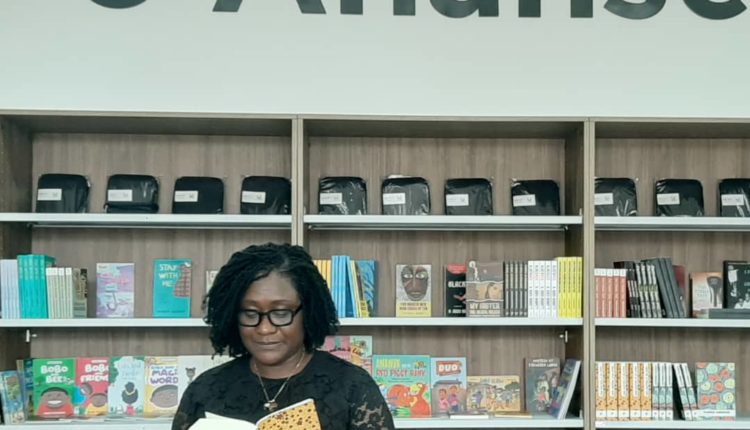e-Ananse libraries, and Dext Technology Limited have been featured in a modern technology documentary by the British Broadcast Company (BBC ).
The brilliant initiative is still winning – garnering all the rave reviews and commendations worldwide.
e-Ananse libraries, and Dext Technology Limited have been featured in a modern technology documentary by the British Broadcast Company (BBC ).
The e-Ananse libraries are a new concept in public libraries in Ghana. Each library, one in Osu and one in Legon, has a unique focus on African heritage and identity, both in its design and its contents.
The books in the collection are primarily by writers of African descent and the libraries serve as cultural and heritage centres based on our African folklore storytelling tradition in which stories come alive.
The social aspect of books and reading are integral to our offering. Each library also has an iHub, which provides state-of-the-art computer facilities using the newest technology and super-fast WiFi.
The initiative after its launch some months ago has gained wide approval, and it is not surprising that the BBC recently featured it in a new documentary with Dext Technology Limited.
Dext Technology, for its part, is a Ghanaian start-up based in Kumasi in the Ashanti region that develops tools for the effective teaching and learning of science, technology, engineering and mathematics.
Its vision is to bring students of the 21st-century education that focuses on problem solving, innovation and creativity.
The science set is a practical science laboratory that has been made small enough to fit in students’ bags and on the desks to enhance the understanding of science courses.
The Resource Box, as it is called, is expected to help build the capacity of students’ creativity and introduce them to a problem-solving approach as well as innovation for education in basic schools.
The innovation by Dext Technology Limited is one of the leading African EduTech innovation startups effecting change in STEM education in Africa, and provides the most cost-effective and least intimidating way to introduce students to innovation, problem solving and technology.
It uses a very agile design process, enabled by 3D printing and laser cutting, to prototype and redesign material to make them cost effective.
The science set was adjudged the most innovative education solution on the continent by the African Union in 2018. It recently won the ultimate prize at the MTN Heroes of Change.


Comments are closed.